Erectile Dysfunction?: Understanding the Causes and Finding Natural Solutions
Addressing the topic of erectile dysfunction is never easy. Many...
October 7, 2025

Addressing the topic of erectile dysfunction is never easy. Many men experience this, but they often tend to keep quiet out of shame or embarrassment. However, it’s a subject that deserves to be discussed openly. It isn’t a life sentence, and there are solutions to help you understand why it’s happening and to find treatments. We’re going to explore this subject together so that everyone can regain a bit of peace of mind.

Erectile dysfunction, it’s a subject people don’t much like talking about, don’t you think? And yet, it affects a lot of people. We’re going to explore this subject together, openly, to understand what’s happening and how it can be addressed. Hold on tight, we’re going to explore the different facets of this problem and see how to get back to a fulfilling sex life. It’s not a life sentence, we promise!
Erectile dysfunction (ED) is when a man has difficulty getting or keeping an erection firm enough for satisfactory sexual intercourse. In short, it’s like the body says “no” at the wrong time. It’s more common than you might think, and it can have a significant impact on self-confidence and quality of life.
Be careful not to confuse the terms! Erectile dysfunction (ED) is a problem with having an erection. Low libido is a lack of sexual desire. As for male infertility, it’s related to the number or quality of sperm, and prevents conception. These are three different things, even if they can sometimes be linked. For example, a man with a low libido may not seek to have erections, which can indirectly affect his erectile function. It’s important to understand these distinctions clearly in order to target health problems and find appropriate solutions. A healthy and balanced diet can help improve overall health, but it won’t necessarily solve all these issues.
Erectile dysfunction doesn’t just happen out of the blue. It is often caused by a combination of physical and psychological factors. You need to understand this so you can find the right solutions. We’ll look at all of this together, without making it complicated.
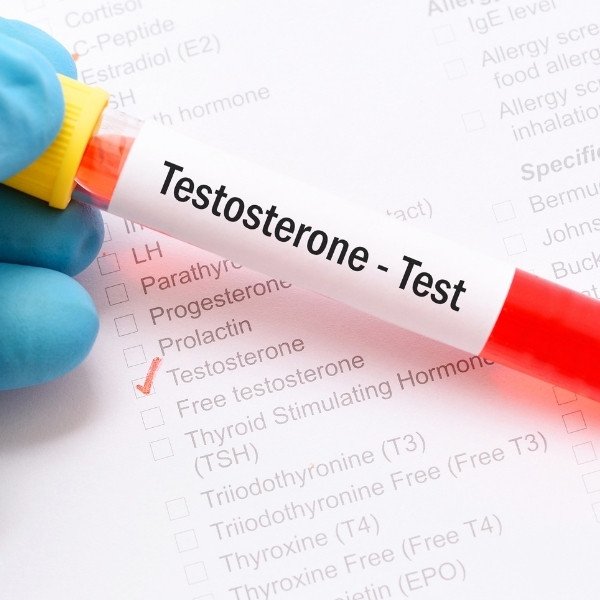
When we talk about the physical causes of erectile dysfunction, we immediately think of very real health problems. Diabetes, for example, can damage the nerves and blood vessels, which can affect an erection. Heart disease, high blood pressure, and high cholesterol can also play a role because they reduce blood flow to the penis. Hormonal disorders, such as a low testosterone level, are also a frequent cause.
Here are a few examples of common physical causes:
The mind has a significant impact on sexual health. Stress, anxiety, and depression can sabotage sexual desire and the ability to get an erection. Sometimes, a difficult period is the sole cause of a drop in libido, but if it lasts, it can become a real problem. Relationship issues with your partner can also be a source of stress and anxiety, which can lead to erectile dysfunction.
Performance anxiety is a vicious circle. The more you’re afraid of not being up to the task, the more likely you are to fail. It’s important to break this vicious circle by relaxing and communicating with your partner.
Some frequent psychological causes:
Let’s be honest, our lifestyle has a considerable impact on our sexual health. What we eat, what we drink, whether we smoke… all of this plays a role in the onset of erectile dysfunction. It’s not always easy to change your habits, but it really can make a difference.
Alcohol, tobacco, and drugs are a bit of a hellish trio for erectile function. Alcohol, in small doses, can be disinhibiting, but in high doses, it’s a disaster. Tobacco damages blood vessels, which can cause health issues and make getting an erection more difficult. As for drugs, they can also disrupt the nervous and hormonal systems, which is bad for sexual desire. If you want to cut down or stop, know that there are professionals and support groups available to help you. It’s a real investment in your sexual health and quality of life.
Sugar is a bit of the poison of our time. We eat too much of it, and that leads to consequences for our general health, as well as for our sexual life in particular. Excessive sugar consumption can lead to:

Adopting a healthy and balanced diet is a bit like investing in your sexual health long-term. You feel better, you have more energy, and you reduce the risk of developing problems with erectile dysfunction. It isn’t always easy, but it is definitely worth it.
To limit the effects of sugar, prioritise foods with a low glycaemic index such as vegetables, fresh fruit, and whole grains. Avoid sugary drinks, industrial pastries, and ultra-processed products rich in added sugar as much as possible. These small changes can really make a difference to your sexual health.
Let’s talk about natural remedies for erectile dysfunction. Don’t panic; there are gentle solutions to stimulate things. Let’s look at how nature can help us get back into shape without necessarily having to turn to medication.
Herbs are a bit like grandmother’s remedies, but with a scientific basis (sometimes!). Some can really give you a boost.
However, be careful, herbs aren’t magic. They can help, but they don’t replace medical advice if health problems persist. Also, everyone reacts differently, so you have to test them to find out what works for you.
Here are a few medicinal herbs and natural aphrodisiacs:


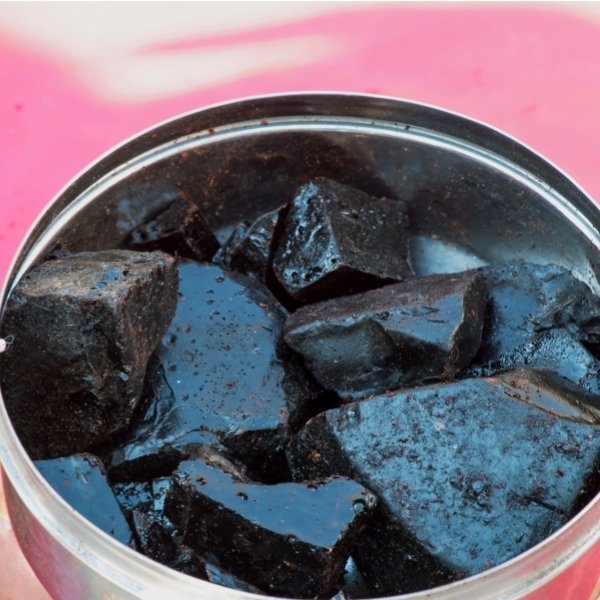

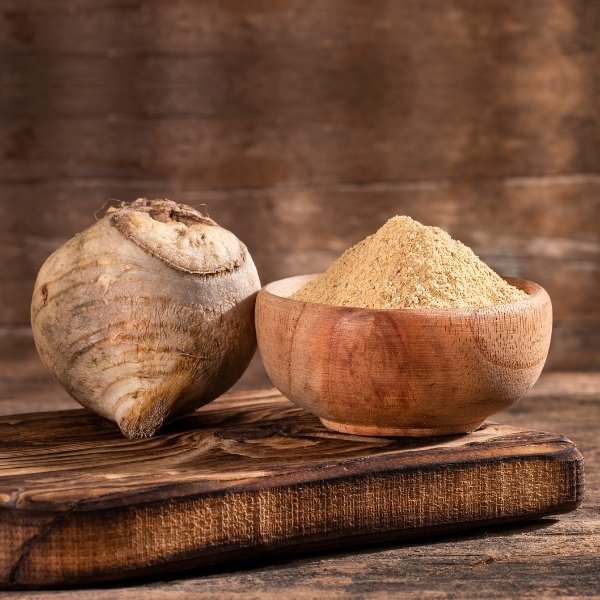
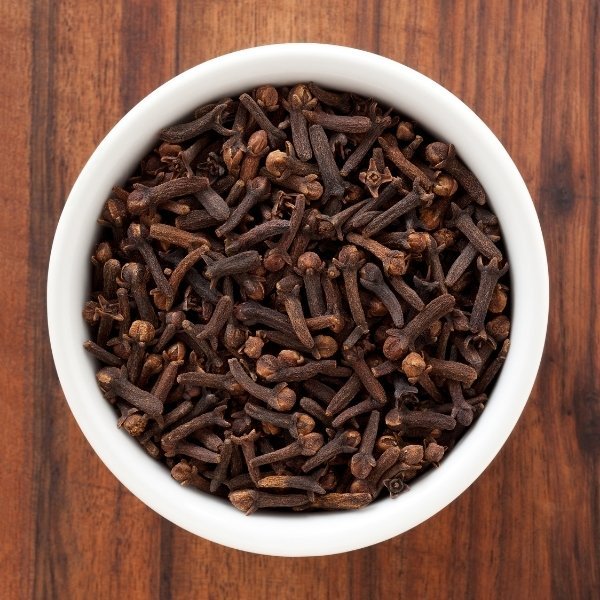


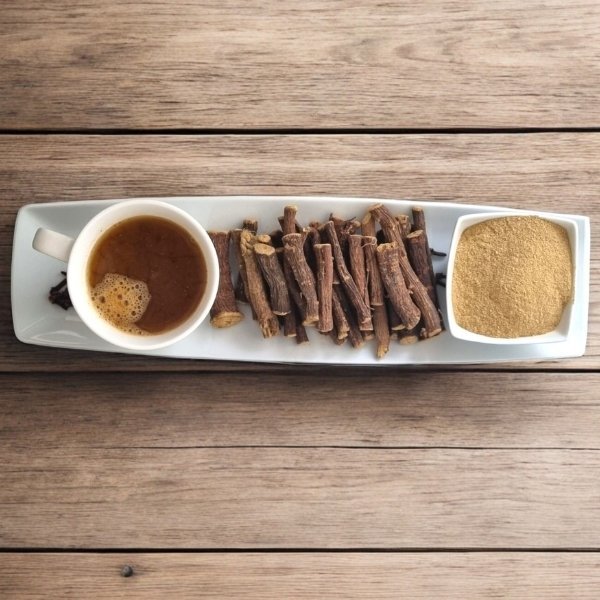
Don’t forget, a healthy and balanced diet is essential for general health, and this can have a positive impact on erectile dysfunction and low libido. It’s not just about herbs, but a holistic approach aimed at feeling better in your body and your mind. And that counts for a lot!
Food plays a crucial role in our overall health, including our sex life! What we eat can truly influence our testosterone levels as well as our sexual desire. So, if you’re experiencing a drop in libido, taking a look at your plate might be a good idea. We’re going to look at a few foods that can give you a boost.
What we put on our plate can play a key role in hormonal balance and sexual vitality. Certain foods, whether of animal or plant origin, are particularly recognized for their ability to support testosterone production, improve blood circulation, or stimulate the libido.
Here are a few examples of foods to regularly include in your diet:
Integrating these foods into a varied and balanced diet can help improve not only sexual health, but also general energy, focus, and well-being.
It is important to remember that diet, however beneficial, is only one aspect of sexual health. If difficulties persist, a medical consultation remains essential to identify any underlying causes and find suitable solutions.

Let’s be honest, physical activity can really help with erectile dysfunction (ED). It’s not just for getting rock-hard abs, but also for getting the machine going again down below. And besides, exercise isn’t the only solution; stimulation techniques can also work wonders.
The idea isn’t to become an Olympic athlete overnight, but moving a little is good for the body and the mind. And that is also felt in terms of sexual desire. Here are a few ideas:
Regular physical activity helps reduce stress, improves blood circulation, and increases testosterone levels. All of that is a bonus in the fight against erectile dysfunction (ED).
In addition to exercise, there are stimulation techniques that can help reawaken the senses. It’s not necessarily complicated; it’s simply a matter of reconnecting with your body and your desires. For example:
The important thing is to have fun without putting pressure on yourself. If you have health problems, don’t hesitate to consult a doctor to talk about them. He can give you advice adapted to your situation. And don’t forget, a healthy and balanced diet is the foundation for good sexual health!
We often talk about quick fixes for erectile dysfunction (ED), but the truth is that sexual health is connected to everything else. If you truly want to improve things, you need to take an overall approach. It’s not just about taking a pill; it’s about adopting a healthier lifestyle.
Here are a few avenues to explore to improve your general health and well-being, which will have a positive impact on your sex life.
While male infertility and erectile dysfunction are two different things, they can sometimes be linked. Impotence, or sexual impotence, is defined as the inability to get or maintain an erection. Infertility, on the other hand, concerns the ability to conceive a child. You can have erection problems without being infertile, and vice versa. It’s a bit like having a car that starts poorly (erectile dysfunction) and a car that has trouble transporting passengers (infertility). It’s not always the same thing, but sometimes, both problems can occur at the same time.
Male infertility is often linked to issues with the number or quality of sperm. Sometimes, there are enough sperm, but they aren’t mobile enough to reach the egg. In other cases, the problem lies in the sperm’s shape.
Here are a few factors that can influence male fertility:
While distinct, erectile dysfunction and infertility can be linked. For example, certain hormonal disorders can affect both erectile function and sperm production. Additionally, some medical treatments for erectile dysfunction can influence fertility. Stress and anxiety related to erectile dysfunction can also have an indirect impact on fertility by decreasing sexual desire and the frequency of intercourse.
It’s important to note that erectile dysfunction isn’t always a sign of infertility. Many men who have difficulty with erections can still conceive a child. However, if you have concerns about your fertility, it’s best to consult a doctor.
If you’re experiencing erection problems and are worried about your fertility, talk to your doctor. They can run tests to determine the cause of your issues and suggest suitable solutions. A healthy and balanced diet, regular physical activity, and good stress management can help improve both your erectile function and your fertility. Remember, there are solutions and health professionals available to support you.
So, at what point should you say to yourself, “Okay, now I need to see a doctor”? That’s an important question, because erectile dysfunction can be a symptom of other, more serious health issues. We often tend to wait for it to pass, but sometimes, it’s better not to delay.
If your erection problems have lasted for several weeks, are getting worse, or are accompanied by pain or difficulty urinating, it’s time to consult a doctor. It might just be a temporary issue related to stress, but it could also reveal a more serious underlying disorder.
Don’t hesitate to talk to your primary care doctor. They can advise you and refer you to a specialist if necessary. That’s what they’re there for!
Here are a few situations where seeing a doctor is strongly recommended:
If you have doubts about your fertility, especially if you’re planning to have children, it’s important to consult a doctor. Male infertility can be linked to erectile dysfunction, and solutions are available.
Talking about it is already a big step toward a solution. Don’t stay alone with your questions and worries. Health first!
If you feel that your low libido is linked to psychological issues, such as stress or anxiety, don’t hesitate to consult a therapist or a sexologist. They can help you identify the causes and find suitable solutions. Sometimes, just a few sessions are enough to resolve the situation. Talking about your problems is often the beginning of healing. Don’t be afraid to ask for help; it’s a sign of strength, not weakness. Your sexual health is important, so take care of it!
If you have doubts about your sperm count, especially if you’re planning to have children, a consultation is also important. Male infertility can be linked to erectile dysfunction, and solutions are available. For example, you can seek medical advice quickly.
There you have it—we’ve covered the topic of erectile dysfunction. The main takeaway is that this isn’t irreversible, and more importantly, you are not alone. It’s an issue that affects many men, and talking about it is already a big step. We’ve seen that the reasons can vary—sometimes physical, sometimes psychological, or a mix of both. The key is not to isolate yourself and ruminate. There are solutions to consider, such as changing your habits, trying natural remedies, or, if necessary, consulting a professional. The goal is to get back to a normal, stress-free life, and above all, to feel good about yourself. So, take heart—the solution is often closer than you think!
Addressing the topic of erectile dysfunction is never easy. Many...
Balancing a busy life while prioritizing physical health and well-being...
Fructose, the simple sugar we consume daily without even thinking...
The Amazon rainforest is home to countless natural wonders, but...
Many women seek solutions to feel more comfortable and confident...